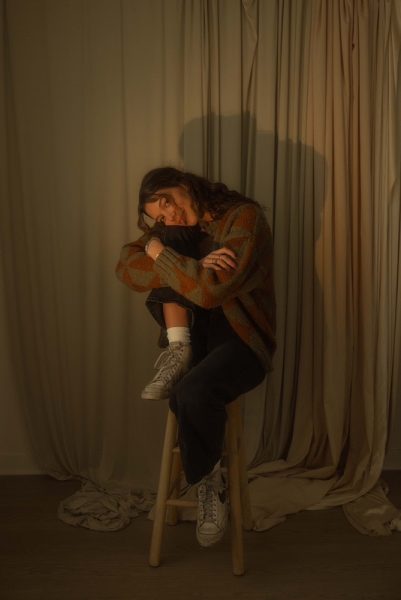Social activist pushes political engagement
Author and social justice activist Robert V. Taylor gave a lecture Sept. 24 collectively sponsored by the graduate school, the department of public and international affairs and the graduate programs in conflict management and resolution, calling out the American people and the global community for being jaded, inactive participants in politics.
The chair of the Desmond Tutu Peace Foundation shared personal stories of the world-known anti-apartheid leader. Taylor explained how the two activists desire to promote engagement with community to eliminate the polarizing and destructive manners in which the government operates. The themes and his life story are all detailed in Taylor’s book, “A New Way to Be Human,” which he referenced throughout the lecture. Taylor started by sharing the story that brought him to the United States and started his work with Tutu.
As a young, white South African, Taylor was drafted by the military in the 1980s when the country was in the middle of apartheid. Instead of joining, Taylor deserted and was sentenced to life in prison. In search of guidance before his sentencing, Taylor went to Archbishop Desmond Tutu to ask how to survive imprisonment.
“Tutu asked me a simple, yet profound question,” said Taylor. “He said to me ‘Tell me about your life, Robert. Not what you’ve done, but who you are.’ I was surprised by it, I didn’t know quite how to respond.”
Taylor was brought back to a childhood spent in a South African hospital.
“I had to have two spinal surgeries as a teenager,” said Taylor. “Each surgery required I lay flat on back for six weeks at a time and essentially not moving. There were no 300 channel televisions in the country at the time, and so I did a lot of reading.”
Taylor read a book by South African bishop Trevor Huddleston about a community outside of Johannesburg that, according to Taylor, was multi-racial, multi-ethnic and multi-cultural.
It was then that the two bonded. Tutu explained that as a teenager, he spent a lot of time in the hospital with tuberculosis. Huddleston was his pastor.
“Tutu said to me that there would be a time when young white South African men would have to go to jail for refusing to serve in the military, but that time was not then,” said Taylor. “He understood something about the importance of timing in civic life and public life and in political dynamics.”
Nine days after their meeting, Tutu sent Taylor to New York City where he was enrolled in Union Theological Seminary for graduate school and began his work as an advocate for social justice.
Taylor’s lecture was attended by several faculty members including Earl Sheridan, chair and professor of public and international affairs, Remonda Kleinberg, professor and program director of conflict management and resolution, and Robert Roer, dean of research and the graduate school.
Roer spearheaded the project and, through a mutual friend, was able to bring Taylor to campus. Before the lecture, Roer commented on the usefulness of Taylor’s message to civilian and military graduate students in the conflict management and resolution program.
“The Army’s special operations command wanted to train their officers in conflict management and resolution, particularly now when they’re going into areas after a conflict and working with the people in those countries to put down insurgencies and deal with terrorists,” said Roer. “I think this lecture will prove very useful to students interested in resolution who are both in the military and ordinary students.”
After listening to the lecture, Kleinberg agreed.
“As a professor who works with conflict, I think it’s refreshing to at least give students that understanding that they do have a voice,” said Kleinberg. “Engage, rather than shut down. I love that message.”
Taylor’s personal story with Tutu and his work immediately after in the Diocese of New York, highlighted the importance of engagement with community as a means of actively participating in government.
However, while professors appreciated the message, students had mixed feelings about the idealistic approach to political engagement.
“I think he had a lot of good points,” said junior Matt Fournier. “I think they were a little idealistic. It was very vague and I don’t think you can have specific rules [of political engagement] for every single person.”
Taylor emphasized every person’s role in social and political engagement. He ended by allowing for the choice of participation but suggesting inaction would be “putting our lives at stake.”








